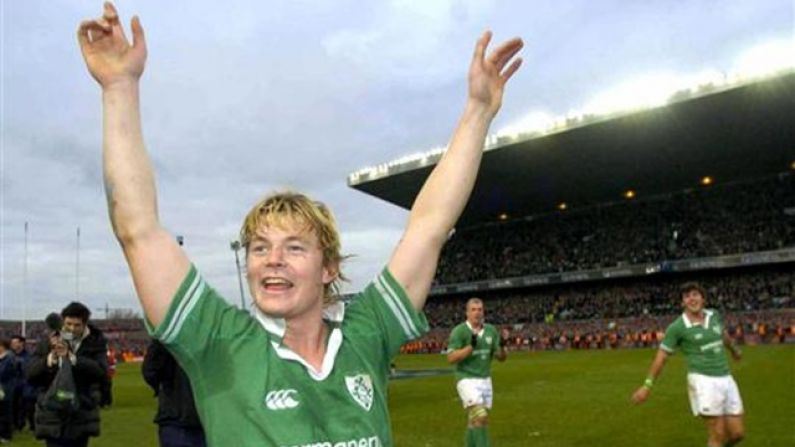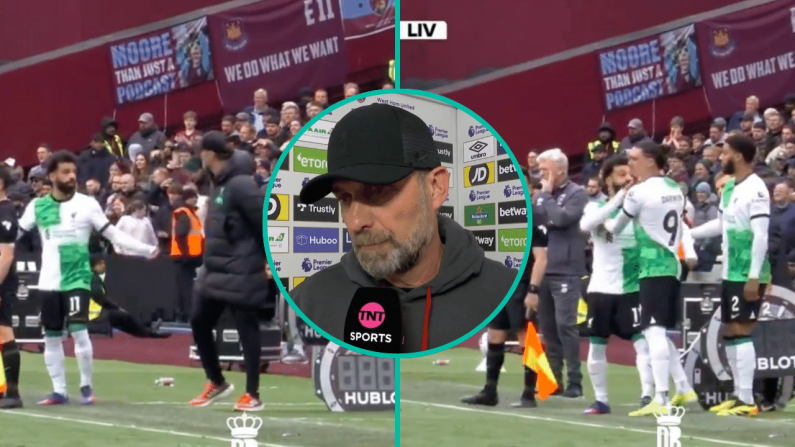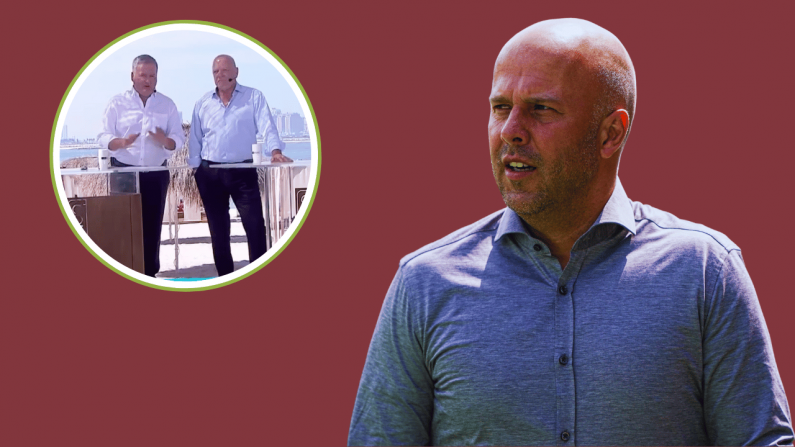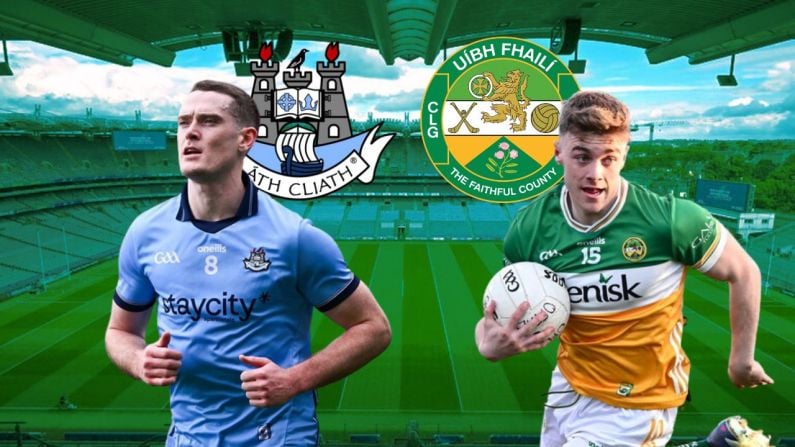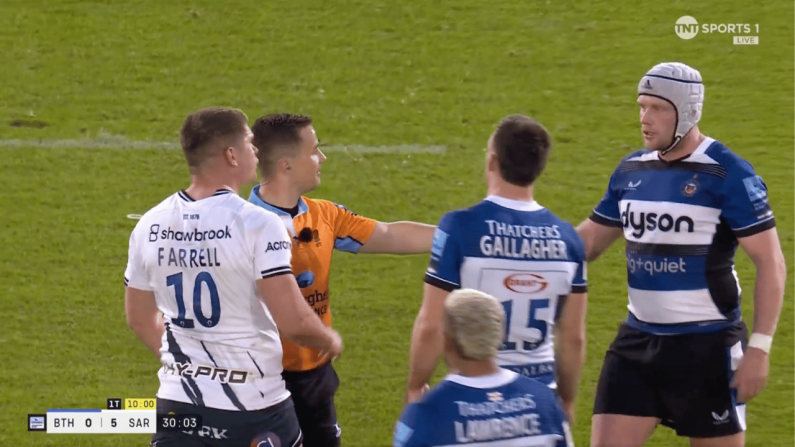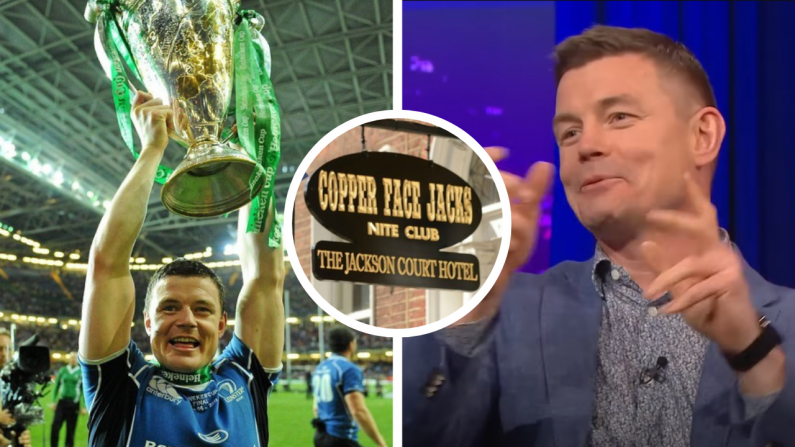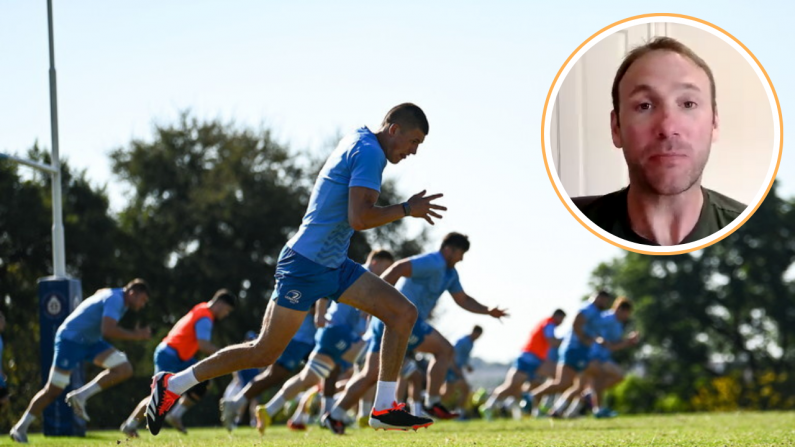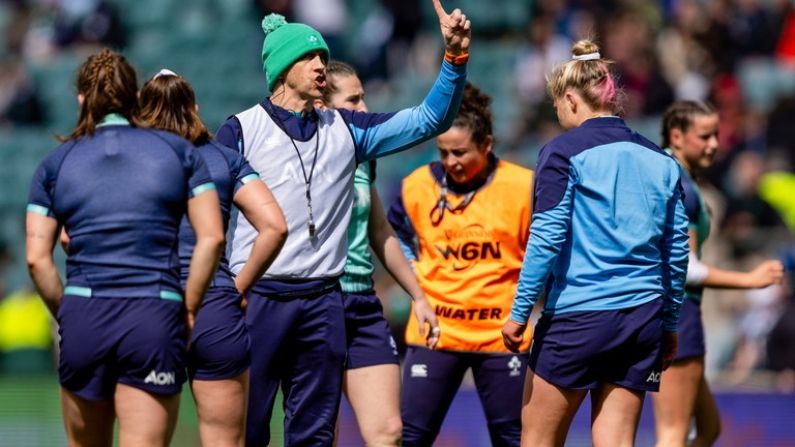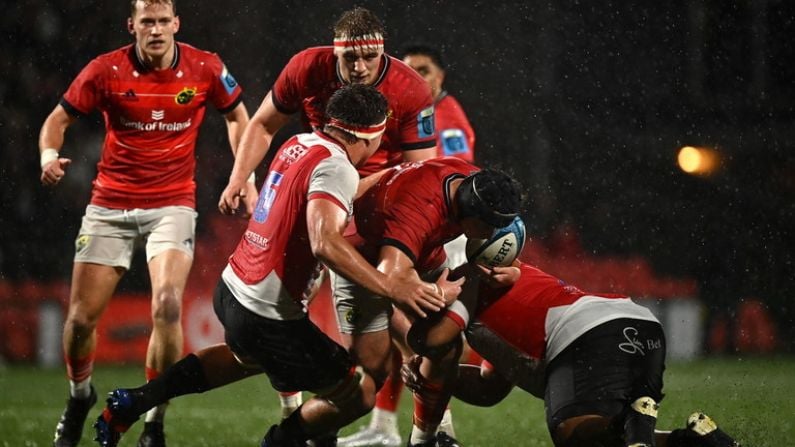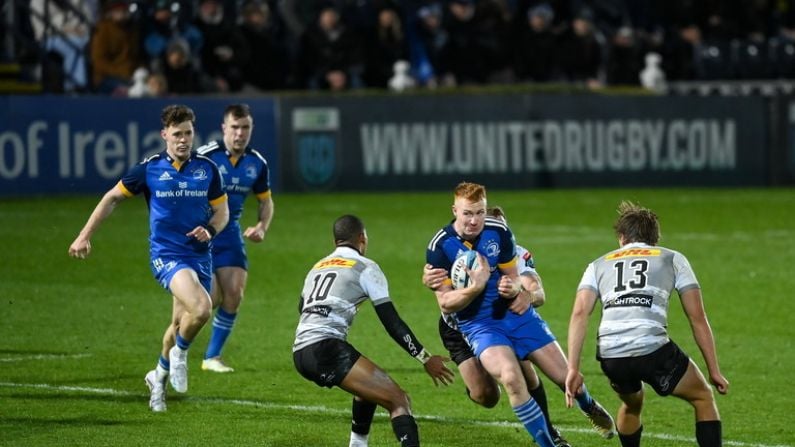How have Ireland fared in those Six Nations campaigns that arrive a few months on from the Rugby World Cup?
All of Ireland's World Cup campaigns could be classed as disappointments with the possible exceptions of 1991 (where there remained a lingering pride at Ireland's stand against the eventual world champions) and 1995 (where a quarter-final slot was the summit of their expectations).
What of the subsequent tournaments? There has been a fair few frustrating seasons, the odd unexpected renaissance and one which yielded a Triple Crown for the first time in yonks.
2012
The sixteen months between Ireland's exit from the 2011 Rugby World Cup and Declan Kidney's resignation was a frustrating time which left supporters in a constant state of exasperation.
The word 'inconsistent' was deployed with metronomic consistency.
Any notions of Grand Slam were killed stone dead in the first week. The last minute loss to Wales was almost as galling as the World Cup defeat a few months earlier. No mean feat.
A week later, officials waited until the last minute before calling off the France-Ireland match, to the anguish of the travelling support. In the rematch, Ireland played out their first draw in the championship in eighteen years.
Otherwise, it was remarkably similar to 2008, with the high point coming in a comfortable victory over Scotland and the tournament ending in a demoralising defeat in Twickenham.
In the final game, the depleted Irish scrum came close to breaking the world land speed record for running backwards.
Verdict: A real letdown
2008
Punch-drunk and reeling from an appalling autumn, Eddie O'Sullivan was given the 2008 Six Nations to hold onto his job.
A year previously, the rugby team surfed a wave of goodwill following the destruction of England in Croke Park. The disaster in France left scars which weren't close to healing by the time the Six Nations rolled around.
Two wins over Italy and Scotland were never going to be enough and O'Sullivan bowed to the inevitable after a dispiriting loss in Twickenham, Ireland's first defeat to England in five years.
After an uncomfortably narrow victory over Italy, they mustered a moral victory against France in Paris. A tentative optimism returned following a healthy win over Scotland in Lansdowne Road.
This was torpedoed in the final two weeks of the campaign as a resurgent Wales won 16-12 in Dublin and Ryan Jones lifted the Triple Crown in Croke Park.
Verdict: Depression hasn't lifted.
2004
The relief of getting past the Argentinians in the pool phase was such that the tournament was deemed a qualified success. A narrow loss against a vulnerable Australia was followed up by an anti-climactic quarter-final exit against France in which Ireland never gave themselves a chance.
Ireland were thus in uncharacteristically buoyant mood heading into a post-World Cup Six Nations. The result, after an opening day loss in Paris, was a first Triple Crown in nineteen years.
Verdict: Happy times.
2000
The loss to Argentina in Lens was a fitting way to end the 1990s. The future for Irish rugby had never looked bleaker.
However, in the months between the end of the World Cup and the commencement of the newly expanded Six Nations, Munster had begun to show some form in the Heineken Cup, beating Saracens and Colomiers home and away.
Initially, there was no sign of this phenomenon impacting on the national team, which had received zero bounce from Ulster's exploits the previous year.
Ireland got a chasing in the opener in Twickenham. Even by the standards of the previous decade, it was an eye-watering loss.
Had Ireland lost their second game to reigning champions Scotland, Gatland had resolved to announce his resignation. With nothing much to lose, he tossed in three debutants - O'Gara, Stringer, Horgan - and recalled Mick Galwey after a five year exile.
Ireland beat the Scots for the first time in twelve years. We were suddenly on a different course. It was the year when the green shoots emerged.
Verdict: Renaissance
1996
The 1995 Rugby World Cup took place in early summer so plenty of time had elapsed by the time the Five Nations kicked off.
Ireland had a coach in place by the start of 1996. The Murphys, Gerry and Noel, had moved on. They were replaced by AIL winning Kiwi coach Murray Kidd.
If the question 'Name any Irish coach since 1990' ever came up on Pointless, then the name of Murray Kidd would probably be your best shout for a pointless answer.
The recollections of many of the Ireland players were harsh.
Nick Poppelwell was of the view that his greatest asset when applying for the Ireland job was his New Zealand passport.
And all the players remembered that he had a charming epithet by which he addressed everywhere member of the squad - 'Fuck Knuckle'. English describes how, without fail, every player he interviewed immediately recalled being addressed as 'Fuck Knuckle'.
Ireland endured a fairly typical 1990s Five Nations campaign. After contriving to lose at home to Scotland again, they were roundly spanked in Paris.
The France game is notorious for Peter Clohessy - who never liked the French - kicking Olivier Roumat in the head, an offence which resulted in outraged condemnation and a lengthy ban, in that order.
He buggered off down under to play Super Rugby with Queensland for a season - an experience he talked to us about here.
Ireland beat Wales 30-17 in Lansdowne Road but the surprise Welsh win over France in the final match condemned us to last place.
Verdict: More shite
1992
Shocking. One of the worst years in Irish rugby history. Ironically, it came after a rare over-performance in the World Cup, even if they beat no one significant in 1991.
Ireland began their campaign with a dismal one point loss at home to the worst Welsh team ever assembled. The game is primarily remembered now for Neil Francis getting knocked out by his opposite number Tony Copsey.
Franno, a classy lineout operator, was dominating Copsey early doors. The English-born Welsh lock hit upon a novel solution to getting the better of Francis, aka, boxing him in the head.
It should have been an automatic sending off but referee Fred Howard told Copsey, 'there are only two Englishmen on the field and I want it to stay that way'.
Ah amateur rugby, how charmingly shambolic! Ireland were probably the better team but surrendered the lead in the closing stages. It was Wales' first win in the Five Nations since 1989.
Ireland's year went on like that. They were slaughtered in London and Paris and were booed by their own supporters in the loss to Scotland.
Verdict: Awful, awful, awful
1988
Ireland began the 1988 campaign with a new coach.
Mick Doyle had jumped the shark long before the '87 New Zealand adventure and would suffer a (non-fatal) heart-attack while trying to join in the training.
He was replaced by Jimmy Davidson, the man behind the all-conquering Ulster provincial side. He was a forward thinker but alienated several players, notably Neil Francis.
Ireland began the campaign with a home victory over Scotland, their last of the century, but no more points were collected.
The final game in Twickenham allegedly witnessed the birth of 'Swing Low, Sweet Chariot' as an England rugby song.
English rugby was in dire shape in the mid 1980s. They finished bottom of the Five Nations in 1987, losing 17-0 to Ireland in Dublin. In the 1988 Five Nations, Wales came to Twickenham and won well.
In their final game, they trailed Jimmy Davidson's team 3-0 at half time. They had yet to score a try in the championship.
In the second half, their young black winger Chris Oti ran riot. Oti, who played for Wasps, ripped through the Ireland defence, scoring three tries. England scored six tries in all (the others coming through Rory Underwood (2) and Gary Rees) and won the game 35-3.
The match was subsequently hailed as a 'watershed moment' for the England side, akin to Ireland's win over Scotland in 2000. They would emerge as a formidable side in the early 1990s.
Verdict: Wholly crap
Read more: Why Ireland Have A Chance Of Making History In The 2016 Six Nations

